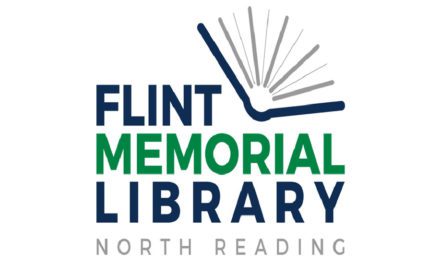THE HOUSE AND SENATE: There were no roll calls in the House or Senate last week. This week, Beacon Hill Roll Call reports on the percentage of times local representatives voted with their party’s leadership in the 2024 session through September 20.
During the week of Sept.16-20, the House met for a total of two hours and 23 minutes and the Senate met for a total of two hours and 23 minutes.
Beacon Hill Roll Call uses 101 votes from the 2024 House session as the basis for this report. This includes all roll calls that were not quorum calls or votes on local issues. Quorum calls are used to gather a majority of members onto the House floor to conduct business and members simply vote “present” in order to indicate their presence in the chamber.
The votes of the 2024 membership of 24 Republicans were compared with those of GOP House Minority Leader Brad Jones (R-North Reading). The votes of the 2024 membership of 132 Democrats were compared to House Speaker Ron Mariano (D-Quincy).
THE DEMOCRATS: A total of 112 (84.8 percent) of the 132 Democrats voted with Mariano 100 percent of the time. There were only 20 Democratic representatives who voted differently than Mariano on any roll calls.
The two Democratic representative who voted the most times against Mariano were Reps. Colleen Garry (D-Dracut) who voted with Mariano only 78 times (82.1 percent of the time) and David Robertson (D-Tewksbury) who voted with Mariano only 85 times (84.1 percent). All other representatives voted with Mariano at least 92 percent of the time.
THE REPUBLICANS: A total of five (20.8 percent) of the 24 GOP members voted with Jones 100 percent of the time. The two Republican representatives who voted the most times against Jones were Reps. Marc Lombardo (R-Billerica) who voted with Jones only 69 times (74.1 percent of the time) and Nick Boldyga (R-Southwick) who voted with Jones only 71 times (74.7 percent pf the time). All other representatives voted with Jones at least 94.9 percent of the time.
THE UNENROLLED: Rep. Susannah Whipps (U-Athol) is the only unenrolled House member and is not affiliated with either the Republican or Democratic party. We based her voting record on how many times she voted with Democratic House Speaker Ron Mariano.
REPRESENTATIVES’ SUPPORT OF THEIR PARTY’S LEADERSHIP IN 2024 THROUGH SEPTEMBER 20 – The percentage next to the representative’s name represents the percentage of times the representative supported his or her party’s leadership so far in 2024 through September 20. The number in parentheses represents the number of times the senator opposed his or her party’s leadership.
Some representatives voted on all 101 roll call votes. Others missed one or more roll calls. The percentage for each representative is calculated based on the number of roll calls on which he or she voted.
Rep. Bradley Jones 100 percent (0)
ALSO UP ON BEACON HILL
USE INTEREST FROM STATE’S “RAIN DAY FUND” TO LEVERAGE FEDERAL FUNDS (S 2954) – The House and Senate approved and sent to Gov. Maura Healey legislation that would leverage the interest from the state’s Rainy Day Fund to better compete for federal dollars, to ensure the state receives the maximum possible share of federal funds and to pay down the state’s long term debt liabilities. The Rainy Day Fund currently has a historic balance of $8.2 billion.
Supporters said the bill would require the state comptroller to transfer interest from the Rainy Day Fund to the Commonwealth Federal Matching and Debt Reduction Fund on a quarterly basis if the Rainy Day balance contains a healthy amount of money. The Secretary of Administration and Finance would then pursue federal funds for infrastructure, resiliency and economic development.
“This final legislation … increases our commonwealth’s ability to compete for federal funds while also paying down our debt obligations,” said Rep. Jack Lewis (D-Framingham), Chair of the House Committee on Federal Stimulus and Census Oversight.
“The needs of the public are ever-changing when it comes to the infrastructure of the state, and to be able to keep up with the needs of our residents is imperative when it comes to accomplishing important public purposes,” said Sen. Patrick O’Connor (R-Weymouth). “Public safety and convenience will ensure that the roles that we all have continue to operate smoothly and keep Massachusetts on the national stage as a competitive economy.”
“Remaining competitive, equitable and affordable as a commonwealth means thinking creatively about our state’s finances and seizing opportunities,” said Senate President Karen Spilka (D-Ashland). “We have been fiscally prudent in building up the largest rainy day funds in Massachusetts’ history, which allows us to leverage our robust interest earnings to compete for federal dollars that will help us strengthen our infrastructure.”
“Ensuring that the commonwealth is able to aggressively compete for the federal funding being made available to states is critical,” said House Speaker Ron Mariano (D-Quincy). “The projects and investments that will be funded across the United States because of the Infrastructure Investment and Jobs Act, the Inflation Reduction Act and the CHIPS and Science Act will transform this country and create a significant number of jobs in the process. It’s vital that Massachusetts does everything that it can to share in that prosperity.”
$362 MILLION SUPPLEMENTAL BUDGET (H 5050) – Gov. Healey signed into law a $362 million budget to help close out fiscal year 2024 that ended on July 31. Key provisions ratify and fund some 38 collective bargaining agreements and direct $228 million in funding for the American Rescue Plan Act Home and Community Based Services before a deadline that would require Massachusetts to return the money to Washington, D.C.
Other provisions include $20 million to replace lost federal funding for victims of violent crimes; $29.7 million in early education and care subsidies to ensure providers can maintain access for all income-eligible families in need of childcare; $5.6 million for tax abatements for veterans, widows, blind persons and the elderly; $5.1 million to support increased demand for the Healthy Incentives Program which provides fresh healthy food options and supports local growers; and $2.1 million for Women, Infants and Children nutrition services to fully support the current caseload of recipients.
ATTORNEY GENERAL CAMPBELL’S YOUTH COUNCIL – Attorney General Andrea Campbell announced the creation of the first-ever Youth Council to advise her office about critical issues facing youth and help the council members build skills as leaders and advocates. The council would be comprised of 18 members between the ages of 14-18 from regions across the state.
Supporters say the council will offer their perspective to help inform and advise the Attorney General’s Office on issues that affect them, including bias and discrimination, mental health, social media use, anti-bullying, school safety, environmental justice, gun violence prevention and government accountability.
“Our young people are our next generation of leaders,” said Campbell. “Far too often, they are left out of conversations about issues that directly impact them. As a mother of two boys, I am fully committed to addressing the challenges facing our youth, and as your Attorney General, I’m proud to seek out young voices to inform our work in these spaces.”
“I’m excited to be part of the … Youth Council because it provides me with a unique opportunity to learn how the Attorney General and state government address matters that are important to young people,” said Youth Council Member Victoria Mukiibi. “Through my past community involvement, I have come to appreciate the importance of youth engagement. I’m eager to collaborate with my peers to add our voices to the conversations that shape decisions that impact our communities.”
TAX AMNESTY PROGRAM – The Massachusetts Department of Revenue (DOR) announced it will administer a tax amnesty program that will run from November 1 through December 30, 2024. The program was part of the fiscal 2025 budget approved by the Legislature and signed into law by Gov. Healey on July 29.
“I urge individuals and businesses to take this opportunity to voluntarily pay their back taxes and interest beginning November 1,” said Geoffrey Snyder, Commissioner of Revenue. “The program is a significant step to help taxpayers come into compliance, including non-filers.”
According to the DOR, the amnesty program will allow non-filers and taxpayers with outstanding tax liabilities to catch up on back taxes and save on penalties. The program aims to bring into compliance those taxpayers who have failed to file returns or have unpaid assessments. Taxpayers who meet certain criteria must request amnesty, file returns and pay outstanding tax and interest liabilities to have eligible penalties waived. Additionally, non-filers or individuals who failed to file required returns with DOR, may benefit from a three-year limited look-back period.
For more information and details, go to https://www.mass.gov/info-details/massachusetts-tax-amnesty-2024?auHash=oXAm2BQH-FSu52XemaRx5FJMF0xALmEvxLj1gGTBCWU




